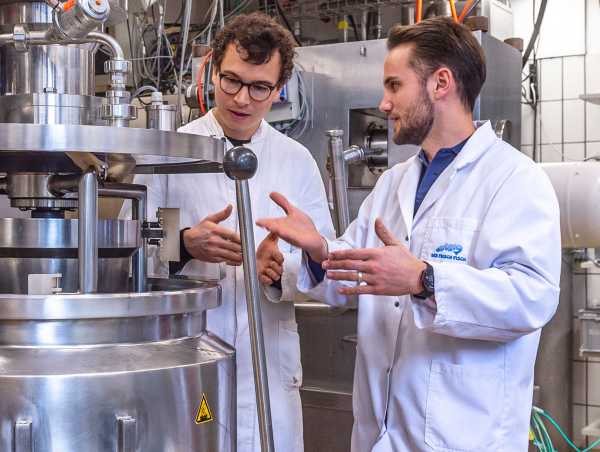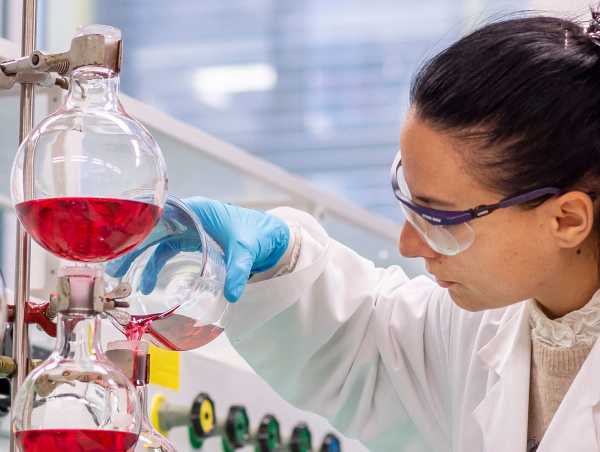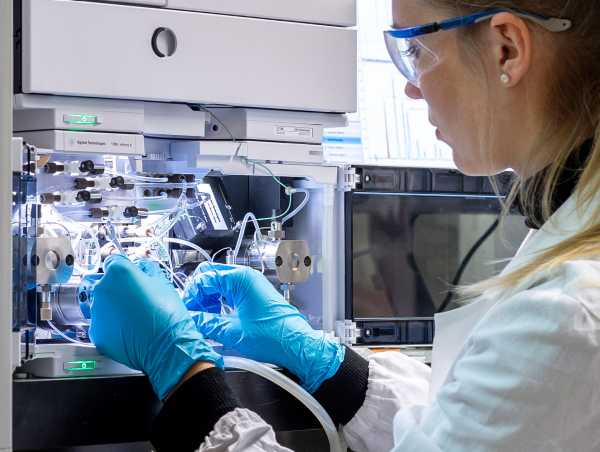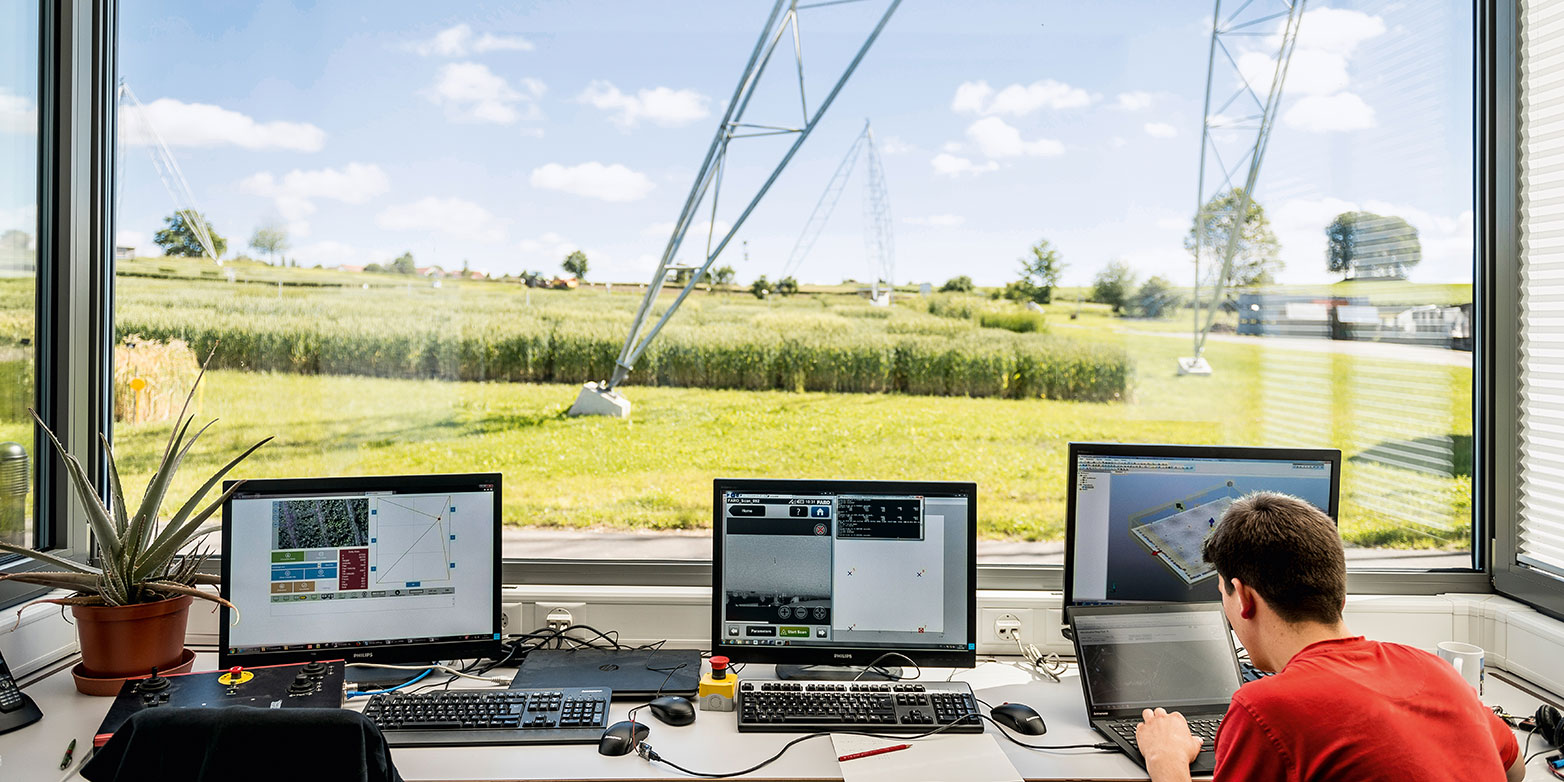Promoting talents and new ideas for food systems of the future
ETH Zurich and EPFL, in cooperation with their longstanding Swiss industry partners Bühler, Givaudan and Nestlé, are launching the Future Food Initiative. The initiative promotes innovative research approaches for sustainable food production. A select group of talented individuals will receive financial support made possible by CHF 4.1 million in donations from industry partners
The goal of Future Food – A Swiss Research Initiative (the external page Future Food Initiative, for short) is to invest in Swiss food and nutrition research and intensify the transfer of knowledge from universities to companies. The core of the initiative is a new fellowship programme at ETH Zurich and EPFL designed to attract talented individuals from Switzerland and abroad to conduct research and innovation within the industrial sector in Switzerland.
The Future Food Initiative is dedicated to tackling the major challenges of sustainable food supply. The main focus is on developing high-quality, healthy and affordable food products that, for example, keep pace with consumer trends or help to solve malnutrition and starvation. Research is also underway to explore new packaging solutions as alternatives to plastics.
“By global standards, Switzerland is very well positioned in the food sciences,” says Alexander Mathys, one of the ETH professors involved in the initiative. “In addition to ETH and EPFL, the country also has a very strong, research-oriented industrial sector and innovative start-up scene. This is a unique ecosystem.”
"I am truly delighted that we can launch this initiative; it will create hand-in-hand partnerships for faculty of our two sister institutes of technology with partner companies of absolutely top caliber, on critical yet fun areas of research,” adds Andreas Mortensen, EPFL Vice President for Research.
The close cooperation between universities and companies makes it possible to take insights and approaches from research and utilise them for society and consumers: “By working together with industry, we can connect new research directions with consumer-relevant aspects at an early stage and enable rapid implementation,” says Mathys, Assistant Professor of Sustainable Food Processing.
Scientific excellence and industrial relevance
“The Future Food Initiative is a programme launched by ETH Zurich and EPFL in cooperation with industry partners in order to pool our expertise in research and innovation and find innovative approaches for healthy foods and a sustainable supply,” says Detlef Günther, ETH Vice President for Research and Corporate Relations.
"The Food Industry, like any other industry, is challenged and enabled by the manifold technological opportunities and by the need for increased sustainability we observe nowadays,” adds Marc Gruber, EPFL Vice President for Innovation. “With this visionary initiative, we bring together research expertise at the highest level with the industry expertise of world-leading companies."
Young researchers who are aiming to become highly qualified experts in basic research or industry, or who want to start companies, play an important role in this transfer of knowledge. For this reason, the Future Food Initiative’s fellowship programme is aimed at researchers who have already completed their doctoral studies but have not yet received a professorship. The fellowships are primarily for talented individuals from abroad who can bring new ideas to Switzerland and combine scientific excellence with industrial relevance.
“This initiative will offer several talented young scientists a unique opportunity for their professional and intellectual growth," says Mortensen.
Individuals whose projects are selected will receive financial support for a period of three years. This includes their integration into an existing professorship and research group at ETH Zurich or EPFL, as well as funds for materials and travel. Each scholarship has been allocated around CHF 390,000. Freedom in teaching, research and the publication of scientific results is guaranteed as part of the agreement. The fellows are free to use the infrastructure of ETH Zurich, EPFL and their industry partners.
Alternatives to animal proteins in milk
The goal of the talent programme for the first call for applications is to support up to ten talented individuals and, if possible, around 50 in the next five years. The Future Food Fellowships for this round of applications are funded by donations from industry partners totalling CHF 4.1 million.
The first call for fellowship applications has just started and will run until 30 April 2019. It is focused on studying ancient plant varieties to develop tasty, nutritious food as well as alternatives to animal proteins in milk. “Plant-based, protein-rich raw materials have enormous potential for new foods that can contribute to a balanced diet and reduce consumption of animal-based dietary components while also reducing the impact on the environment,” says Mathys.
Applications will be reviewed by an evaluation board that includes representatives from the universities and industry partners. The final decision on the funding recipients will be made by the Vice President for Research and Corporate Relations at ETH Zurich and the Vice President for Research at EPFL. The World Food System Center at ETH Zurich and the Food Science and Nutrition Center at EPFL are in charge of organising the initiative.
Research in the food sciences
 In the Laboratory of Food Biochemistry, doctoral student Cristina Lupo is exploring the health promoting properties of food compounds. (Photo: ETH Zurich / Rainer Spitzenberger)
In the Laboratory of Food Biochemistry, doctoral student Cristina Lupo is exploring the health promoting properties of food compounds. (Photo: ETH Zurich / Rainer Spitzenberger)
 In the Laboratory of Food Biochemistry, doctoral student Teresa Demuth is screening bioactive phytochemicals in various food sources. (Photo: ETH Zurich / Rainer Spitzenberger)
In the Laboratory of Food Biochemistry, doctoral student Teresa Demuth is screening bioactive phytochemicals in various food sources. (Photo: ETH Zurich / Rainer Spitzenberger)

